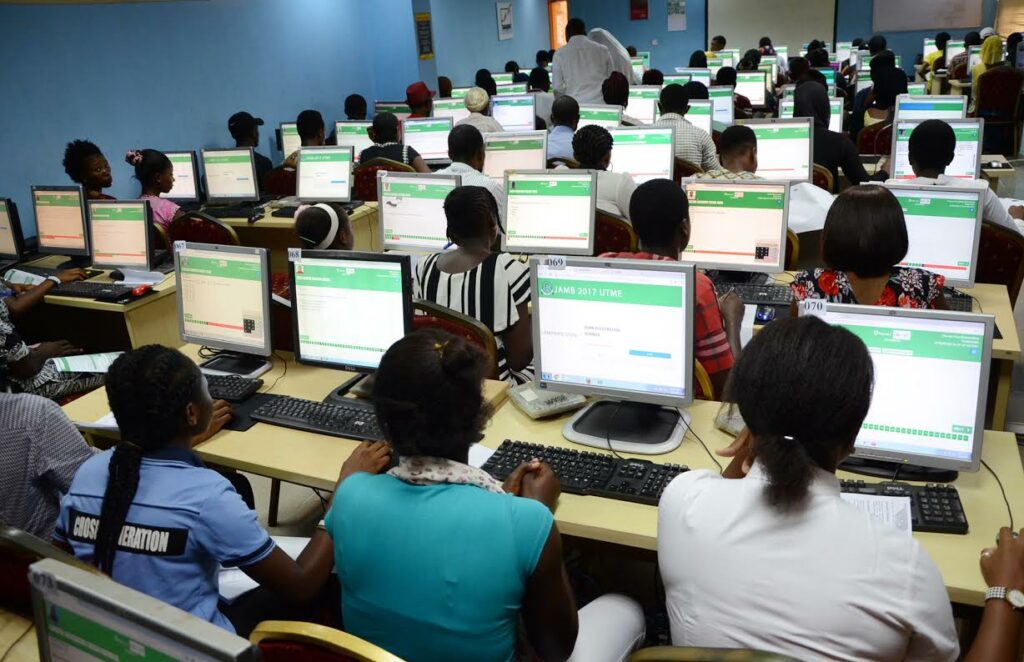The Registrar of Joint Admission Matriculation Board (JAMB) has generated the sum of N8.733 billion revenue from registration of Unified Tertiary Matriculation Examinations (UTME), Direct Entry e-Facility services and consultancy/Miscellaneous as captured in the 2022-2024 Medium Term Expenditure Framework (MTEF) and Fiscal Strategy Paper (FSP).
The details of the revenue generated as of June 2022 were contained in the Board’s financial statement presented to the House of Representatives during the 2021-2022 budget defence and 2023-2025 Medium-term Expenditure Framework (MTEF) and Fiscal Strategy Paper (FSP).
According to the JAMB Registrar, Professor Ishaq Oloyede, the sum of N3.5 billion was remitted to the government’s coffer in 2021, while the sum of N3 billion was remitted by the Board and additional sum of N1.21 million auto-deducted by Federal Government in 2022.
While calling for full autonomy of the Board, Professor Oloyede said: “We are comfortable to be taken off the budget but there are conditions. One of the conditions for example, when students registered in 2016, we collected N5,000 and that had been on for 5 years before I joined. When we came in, we remitted N7.5 billion. We felt it was too much and approached the Federal Government to reduce the fees. We have not added a kobo since.
“I believe we should revert to the N5,000 we were charging. Given the inflation, if we charge N10,000; I am just giving it as an example, nobody will ask the Federal Government for one kobo. I am not aware of anywhere in the world, except maybe Finland— that charges as low as JAMB is charging. In Finland, we know that everything is free.
“We are hearing that you are planning to borrow billions. We are all going to sink at the end of the day. If there is any way anybody believes he can save this country, we should start doing that. The earlier we start the better for us,” Professor Oloyede noted.
Breakdown of the revenue showed that the sum of N5,776,418,410 was realized from UTME registration against the proposed N4.905 billion in the 2022 Appropriation Act.
The sum of N2,255,185,000 was generated from e-Facility services against the sum of N5.9 billion proposed in the Appropriation Act.
The Board also generated the sum of N373,896,200 from Consultancy/Miscellaneous against the sum of N1 billion proposed in the 2022 Appropriation Act.
Similarly, the sum of N326,996,280 was generated from Direct Entry registration against the sum of N327 million proposed in the Appropriation Act.
While the Board’s has incurred the sum of N5.409 billion against the proposed N7.884 billion as overhead cost as of June 2022, the sum of N1.997 billion has been expended on personnel cost against the proposed sum of N4.197 billion.
According to JAMB Registrar, Professor Ishaq Oloyede, the sum of N4 billion revenue is expected in 2023.
From the 2023 revenue projection, JAMB proposed N15.399 billion, with personnel cost of N4.573 billion and N9.946 billion overhead cost.
For 2024, JAMB proposed the sum of N15.553 billion revenue, with personnel cost of N4.848 billion and N10.028 billion overhead cost.
In the 2025 projection, JAMB proposed the sum of N15.629 billion revenue, with N4.990 billion personnel cost and N10.050 billion overhead cost.
He assured that the Board has the capacity to generate up to N4 billion revenue, adding that from the N2 billion saved over the past three years totalling N6 billion to improve operations and minimize cost, is currently in the Agency’s account apart from the operating cost.
Professor Oloyede however noted that the Board resolved to cancel the procurement exercise because he was not satisfied with the process.
In his remarks, Deputy Chairman, House Committee on Finance, Hon Saidu Abdullahi who expressed displeasure over the failure of most revenue-generating agencies to fully declare their operating surplus and account balances stressed the need for Peer review among all federal agencies with the view to instil financial prudence.
“Those agencies wouldn’t want you to know their account balances. But you just told us what you have, how far you have come and what is halting it. I must say again, that agencies have a lot to learn from you. I don’t know whether it’s the SGF or the Head of Service that has the responsibility of bringing agencies together.
“I think if we are doing a peer review and sharing experiences, agency by agency some of them will be better managed than they are today. They leave much to desire in terms of the way they manage their agencies,” he noted.
